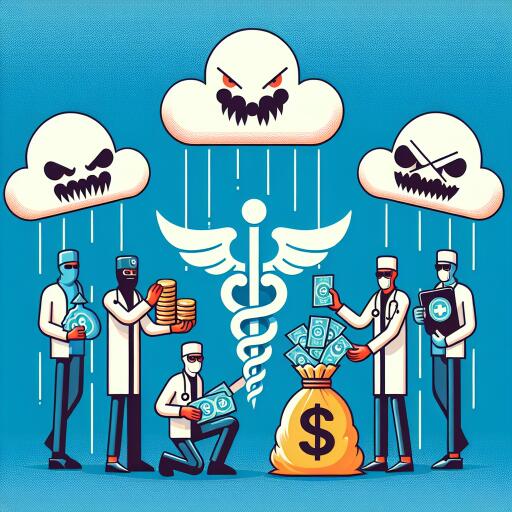Medical Group Pays $240K Fine for 3 Ransomware Attacks
In a concerning series of events, a nonprofit physician services organization in Southern California faced three ransomware attacks within just three weeks in early 2018. These breaches, which affected the protected health information (PHI) of 85,000 patients, led to the federal regulators imposing a substantial civil monetary penalty of $240,000 under the HIPAA guidelines.
The Department of Health and Human Services’ Office for Civil Rights (HHS OCR) announced the penalty against Providence Medical Institute (PMI) on Thursday. This marks the fifth instance of HIPAA enforcement related to ransomware and the second in recent weeks for them, highlighting the growing concern in this area.
PMI operates with 200 providers across 32 medical offices, including seven urgent care centers across southern California. The investigation revealed that electronic protected health information was encrypted by attackers during three ransomware attacks between February and March 2018.
Details of the Attacks
The compromised servers hosted an eClinicalWorks electronic medical record system linked to the Center for Orthopedic Specialists, a practice acquired by PMI in 2016. Unfortunately, at the time of the cyberattacks, the orthopedic group’s IT systems were still being integrated, under the management of Creative Solutions in Computers, a third-party IT vendor.
The HHS OCR’s investigation noted violations of the HIPAA Security Rule, specifically the lack of a business associate agreement with the third-party IT vendor and the failure to implement adequate security policies.
The incidents began on February 18, 2018, when an employee fell victim to a phishing email, triggering the first ransomware attack. A second attack followed on February 25, rendering essential data inaccessible until it was restored with backups days later. The third and final attack on March 4 was traced back to the same attacker, who remotely accessed the system using compromised administrator credentials obtained during the previous assaults.
Impact and Issues Identified
The attacks exposed sensitive patient information, including names, addresses, Social Security numbers, lab results, and financial data. While restoring systems from backups allowed business continuity, the multiple breaches revealed underlying vulnerabilities.
Regulatory attorney Rachel Rose commented on the incident, emphasizing that cybercriminals today employ multiple strands of ransomware simultaneously to increase their impact—often launching attacks strategically after a ransom payment. Additionally, she stressed the need for forensic analysis to identify any dormant threats and ensure new infrastructure components are up to the security standards needed.
Three months post-attack, PMI conducted a thorough assessment, uncovering several security weaknesses at the time of the attack: unsupported operating systems, lack of network separation from public access, poorly configured firewalls, and shared administrator credentials among staff.
Broader Implications in Healthcare IT
The ransomware incidents at PMI bring to light the cybersecurity challenges inherent in healthcare sector consolidation. Mergers, acquisitions, and the integration of IT infrastructures can expose organizations to significant vulnerabilities if not carefully managed.
Rose highlights that HIPAA compliance and cybersecurity evaluations are critical during these transitions. Yet, these considerations often receive insufficient attention, potentially delaying integration or missing crucial updates and patches, thereby opening doors to vulnerabilities.
In response, she suggests implementing a detailed transition plan that includes a comprehensive HIPAA risk analysis to identify and address potential gaps before fully integrating IT systems.
Conclusion and Future Steps
PMI waived its rights to a hearing upon notification from HHS OCR regarding the $240,000 fine, indicating acknowledgment of the agency’s findings. Nevertheless, discussions with PMI representatives on strategies to prevent future breaches remain undisclosed at this time.
The escalating trend of large healthcare data breaches points to the urgent need for robust cybersecurity measures. As Melanie Fontes Rainer, director of HHS OCR, stated, “Failures to fully implement all of the HIPAA Security Rule requirements leave entities vulnerable to cyberattacks.” She further stressed the necessity for the healthcare sector to prioritize cybersecurity and adhere to HIPAA regulations to safeguard patient information effectively.
In conclusion, the PMI case serves as a stark reminder of the continuing risks posed by ransomware and the critical importance of rigorous security measures within the healthcare industry.









